Idea by
Alla Onopchenko, Ioulia Eleftheriadou
REBEL Architecture Lab
Call for ideas 2021
Cultural Amnesia?
Cultural Amnesia?
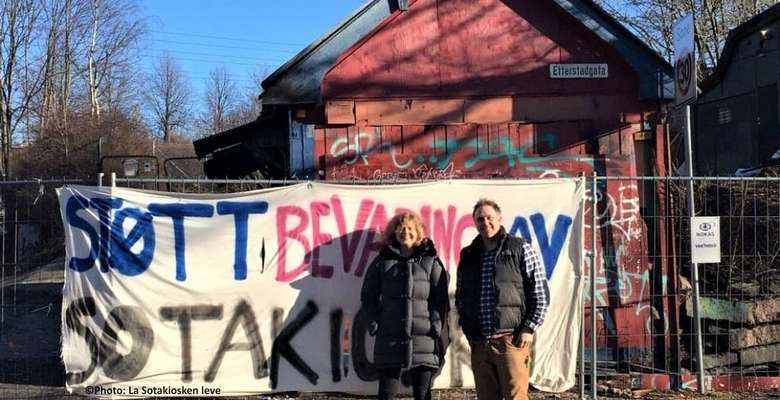
- Site-specific cases
Sotakiosken in Oslo was a café that was first in use at the beginning of twenty-century. It was built with timber construction and the traditional Vålerenga neighborhood colors.
Since the developers want to tear it down for a big-scale residential project, the locals have generated numerous protests in the area in order to maintain the building. Sotakiosken is a landmark and part of the cultural memories of the Old Eastern Oslo.
Our position is to provide a heterotopian project in which the little red house coexists with the new residential project.
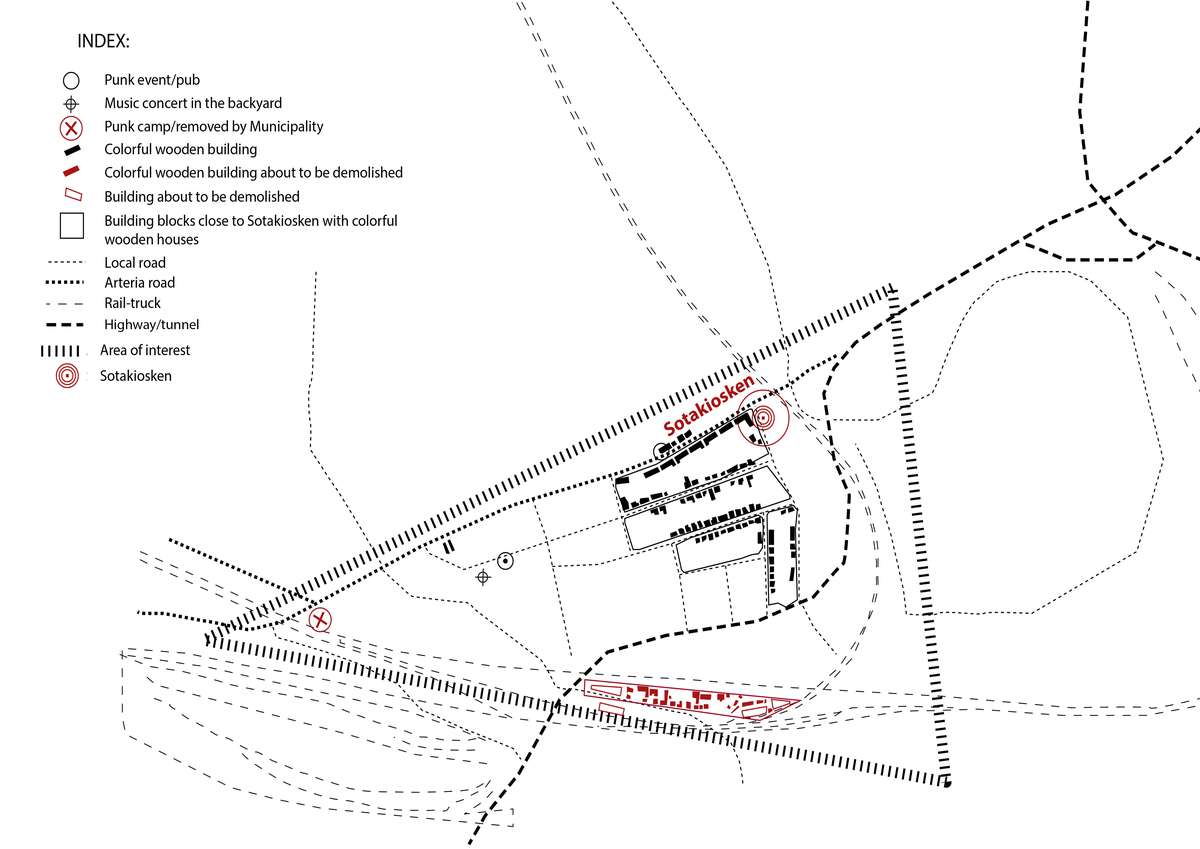
Vålerenga is a part of the eastern Oslo as it is divided by the river Akerselva. In the past Eastern Oslo used to be the site where the workers of the factories along the river lived. Today, this is where the majority of the immigrants of Oslo live.
Vålerenga is characterized by the typical small colorful wooden buildings that are listed as protected by Oslo Municipality. More specifically, the residents of Vålerenga describe their neighborhood as diverse, multicultural, and even artistic.
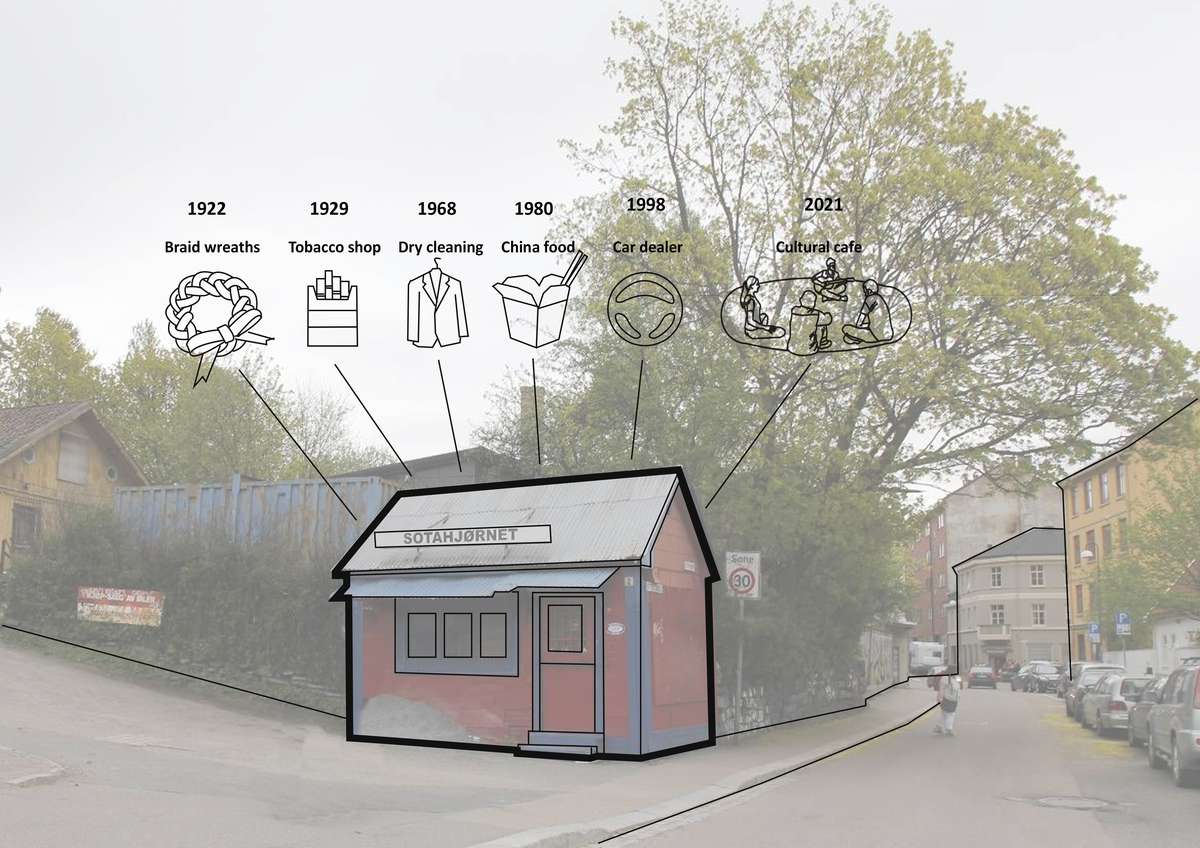
As part of our research, we invited Oslo citizens to a series of interviews/discussions in order to map the situation. Our intention was to enrich social sustainability through including the voice of local residents in the process of their neighborhood transformation. In our approach, urban transformations should be a part of a democratic procedure that empowers public participation. Stories, imaginations, desires were taken into consideration while paying attention to Sotakiosken.
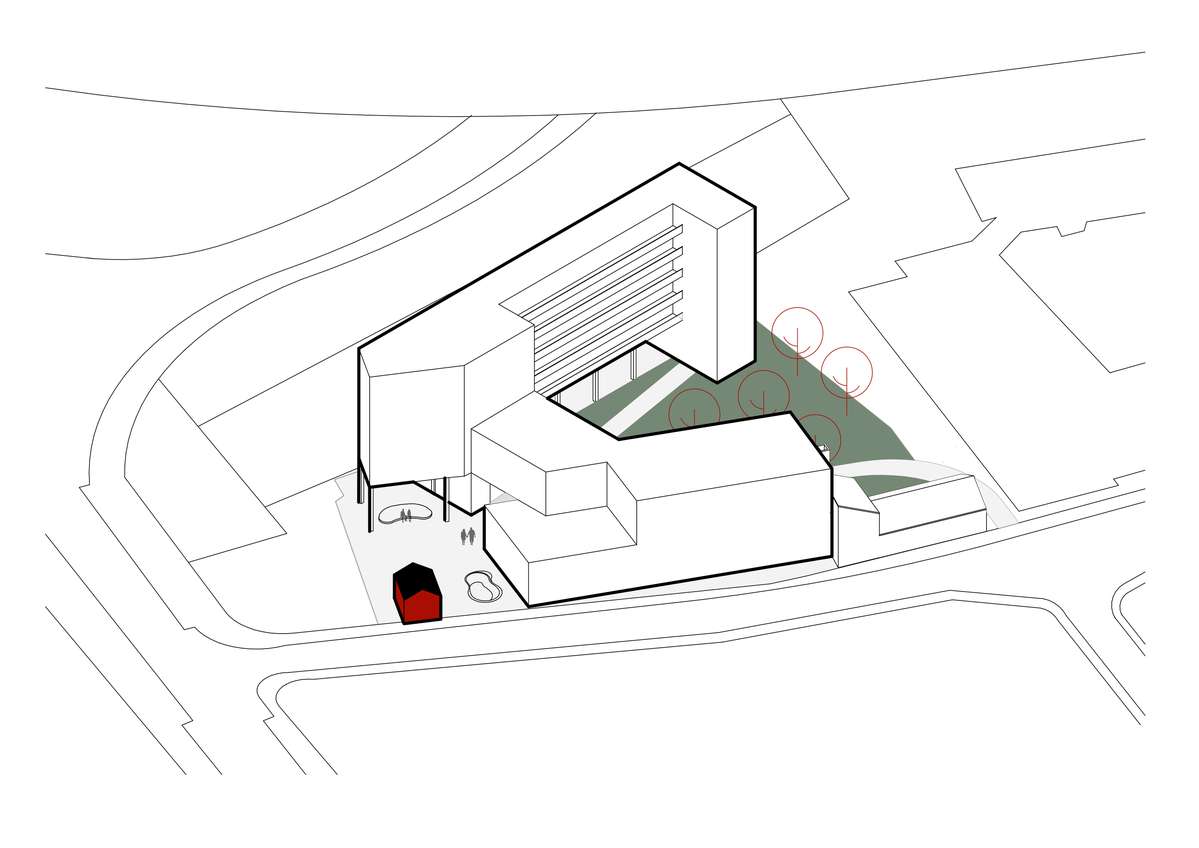
The proposal provides 57 apartments which are equal to the developers' proposal. In our proposal the apartments are smaller in size but still the same as efficient because of the proposed shared additional spaces in the building block. This alternative renders the maintenance of Sotakiosken possible. The small building becomes a cultural café and space for the youth clubs, in the memory of its original function, and gives an additional character in dialogue with the new residential project.
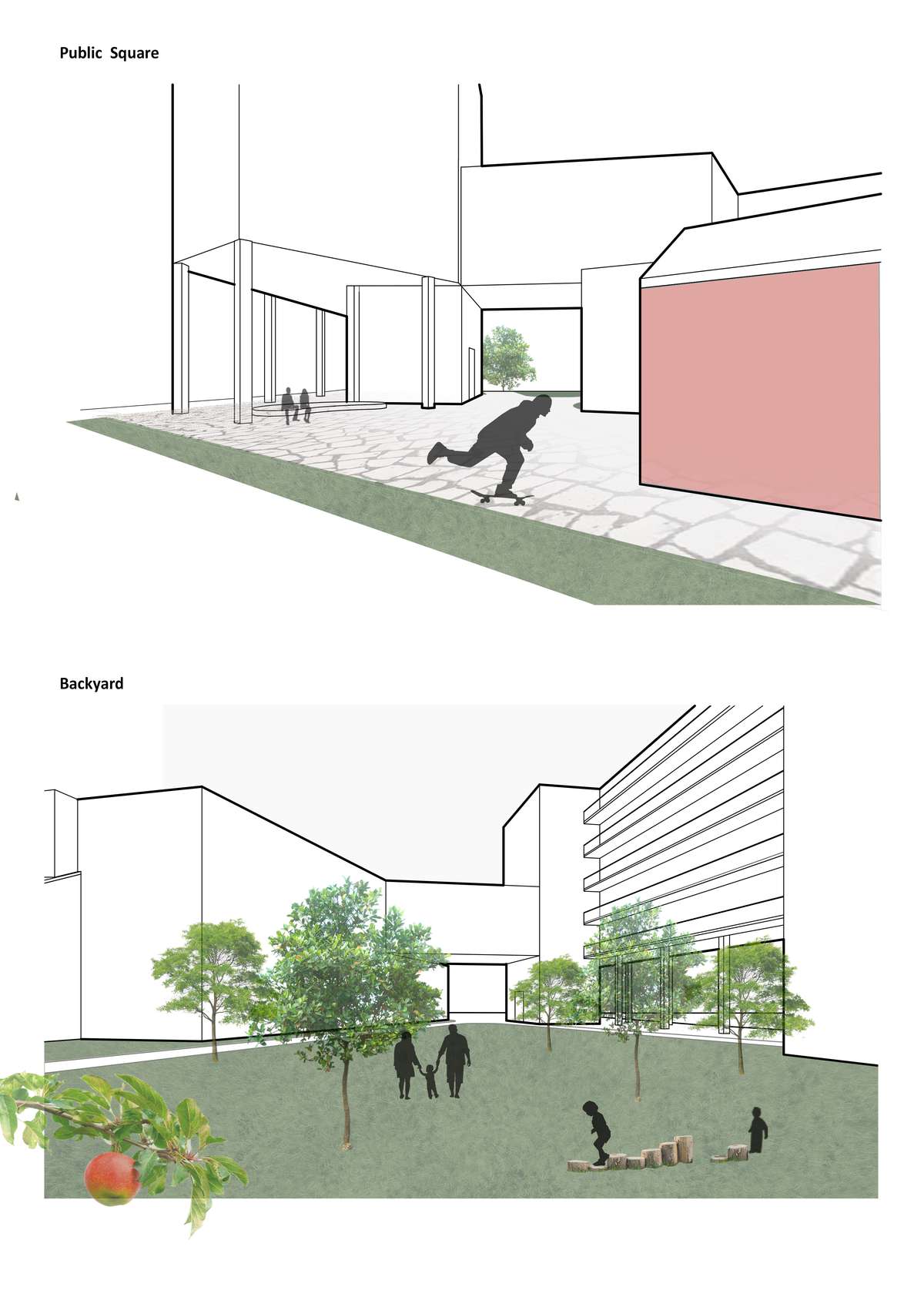
The building volumes frame an assessable for everyone square around Sotakiosken, which is transformed into a cultural café. Here is also located a small skateboard park and a platform which can also work as a scene, a sitting place. The proposal also includes a backyard for the neighbors with a playground, climbing wall, and outdoor gym.
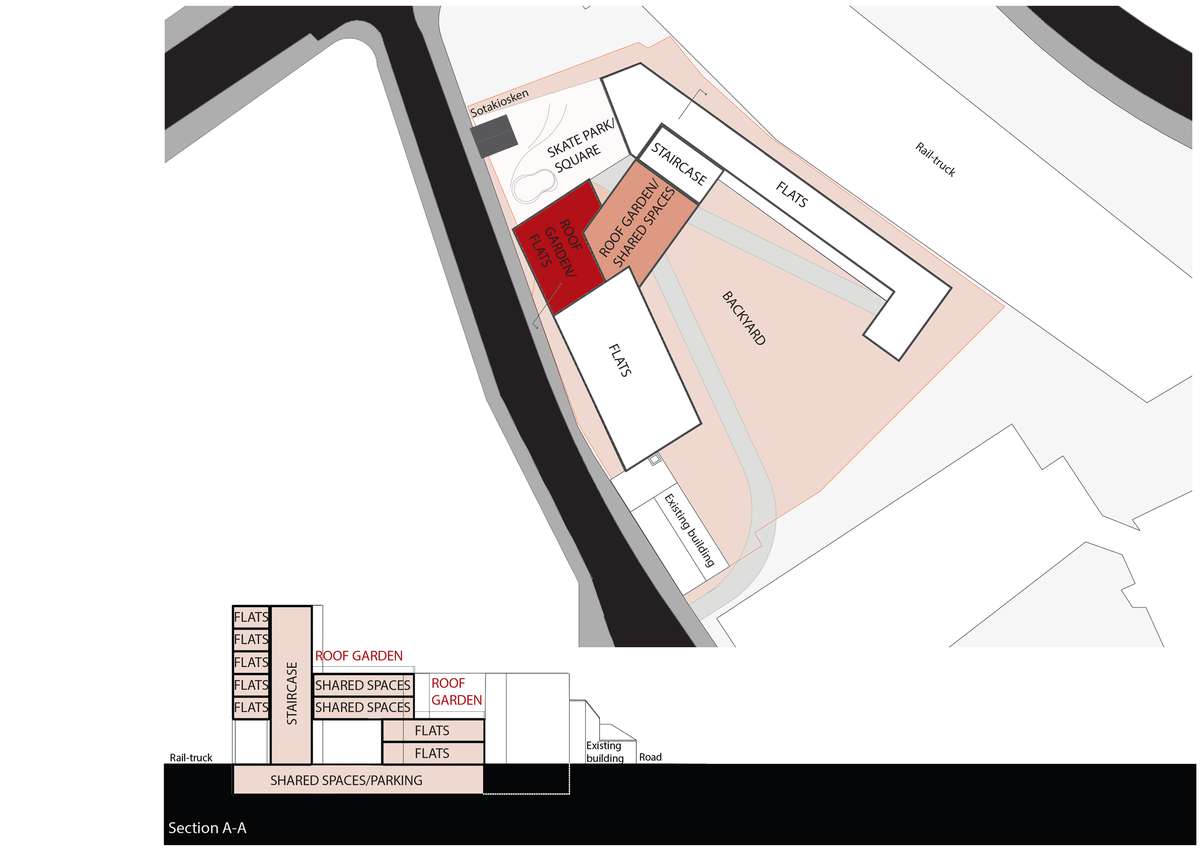
The shared spaces the building includes are a common living room, offices, hotel rooms for the guests, urban farming spaces, laundry room, space for movie projection or watching sports games, bicycle workshop, space for common meetings. The last one can also serve as space for exhibitions, garage sales, reading club, pecha-kucha, music practice. All common spaces are protected by the building block council and can be used by all residents through an online booking platform.
Cultural Amnesia?
Cultural Amnesia?

- Site-specific cases
Sotakiosken in Oslo was a café that was first in use at the beginning of twenty-century. It was built with timber construction and the traditional Vålerenga neighborhood colors.
Since the developers want to tear it down for a big-scale residential project, the locals have generated numerous protests in the area in order to maintain the building. Sotakiosken is a landmark and part of the cultural memories of the Old Eastern Oslo.
Our position is to provide a heterotopian project in which the little red house coexists with the new residential project.
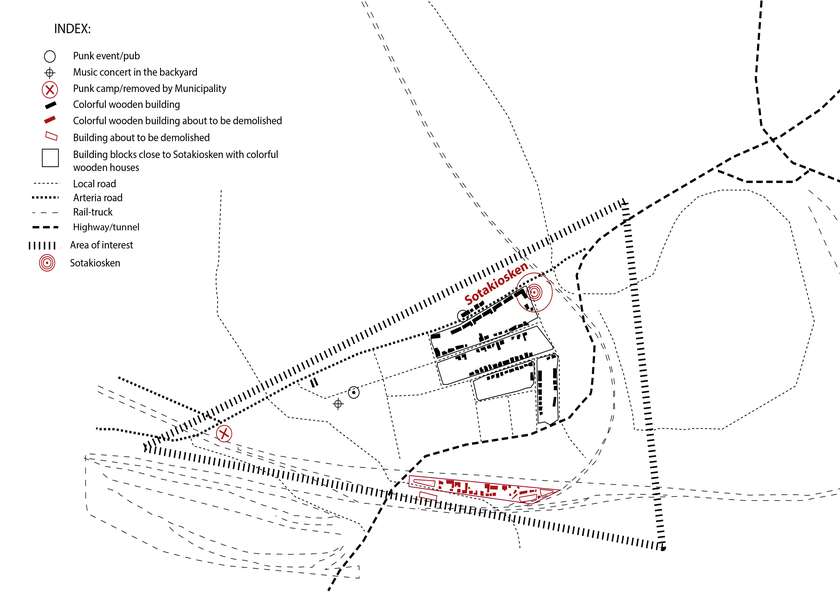
Vålerenga is a part of the eastern Oslo as it is divided by the river Akerselva. In the past Eastern Oslo used to be the site where the workers of the factories along the river lived. Today, this is where the majority of the immigrants of Oslo live.
Vålerenga is characterized by the typical small colorful wooden buildings that are listed as protected by Oslo Municipality. More specifically, the residents of Vålerenga describe their neighborhood as diverse, multicultural, and even artistic.
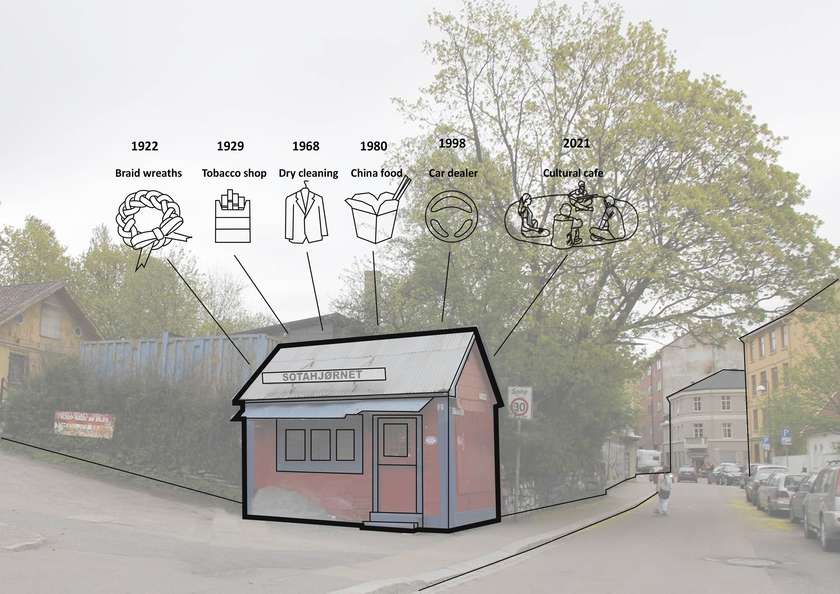
As part of our research, we invited Oslo citizens to a series of interviews/discussions in order to map the situation. Our intention was to enrich social sustainability through including the voice of local residents in the process of their neighborhood transformation. In our approach, urban transformations should be a part of a democratic procedure that empowers public participation. Stories, imaginations, desires were taken into consideration while paying attention to Sotakiosken.
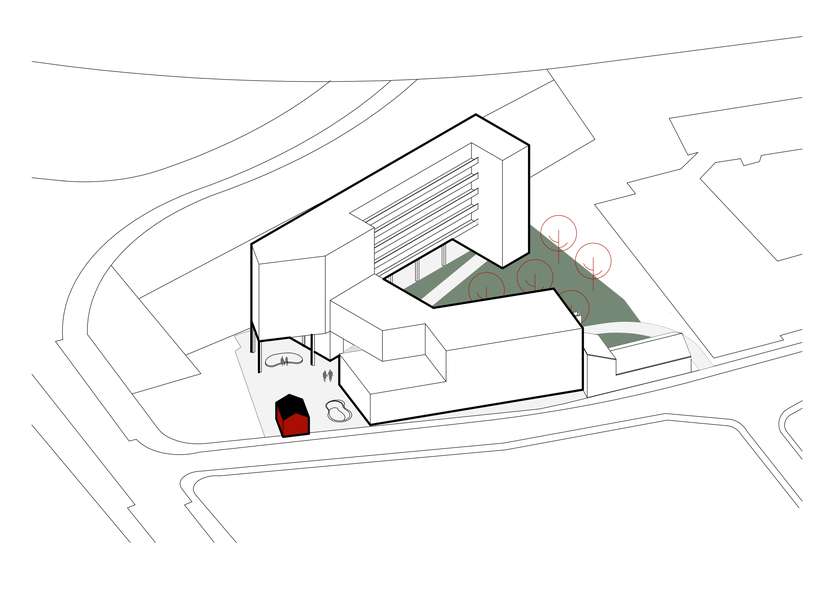
The proposal provides 57 apartments which are equal to the developers' proposal. In our proposal the apartments are smaller in size but still the same as efficient because of the proposed shared additional spaces in the building block. This alternative renders the maintenance of Sotakiosken possible. The small building becomes a cultural café and space for the youth clubs, in the memory of its original function, and gives an additional character in dialogue with the new residential project.
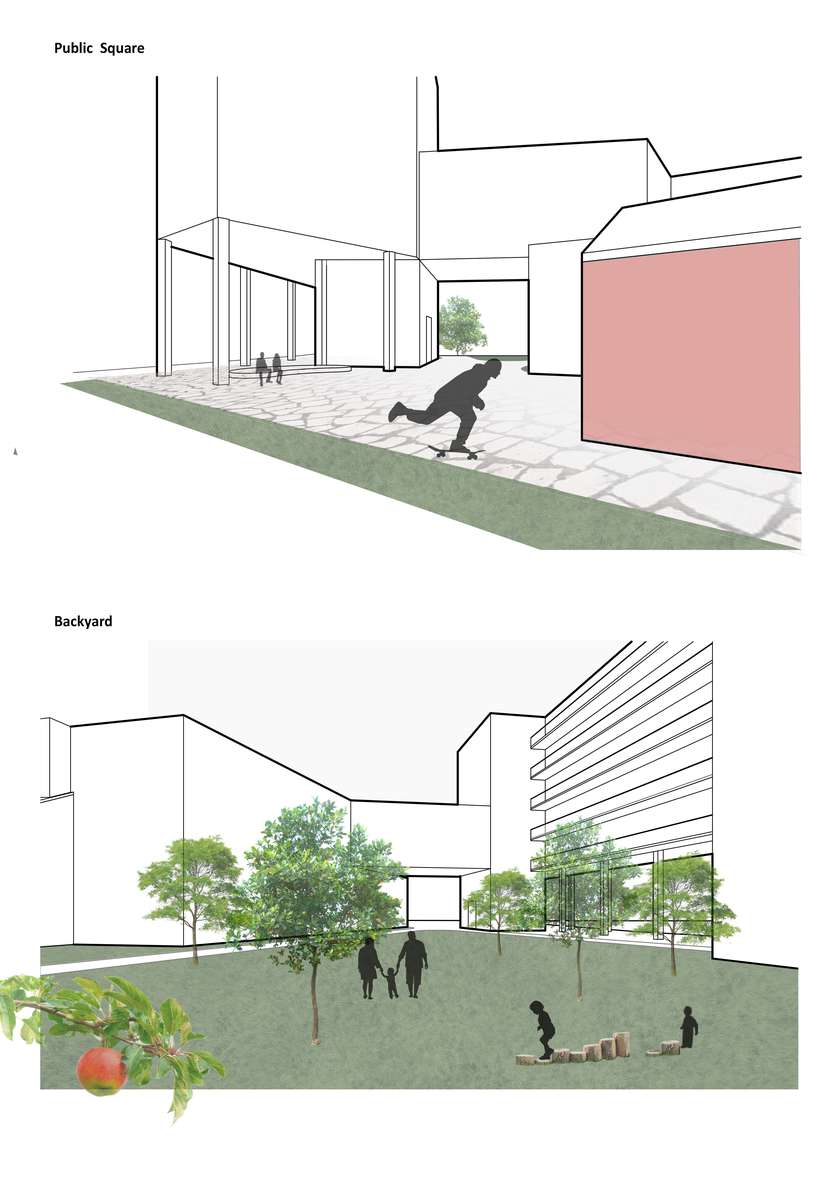
The building volumes frame an assessable for everyone square around Sotakiosken, which is transformed into a cultural café. Here is also located a small skateboard park and a platform which can also work as a scene, a sitting place. The proposal also includes a backyard for the neighbors with a playground, climbing wall, and outdoor gym.
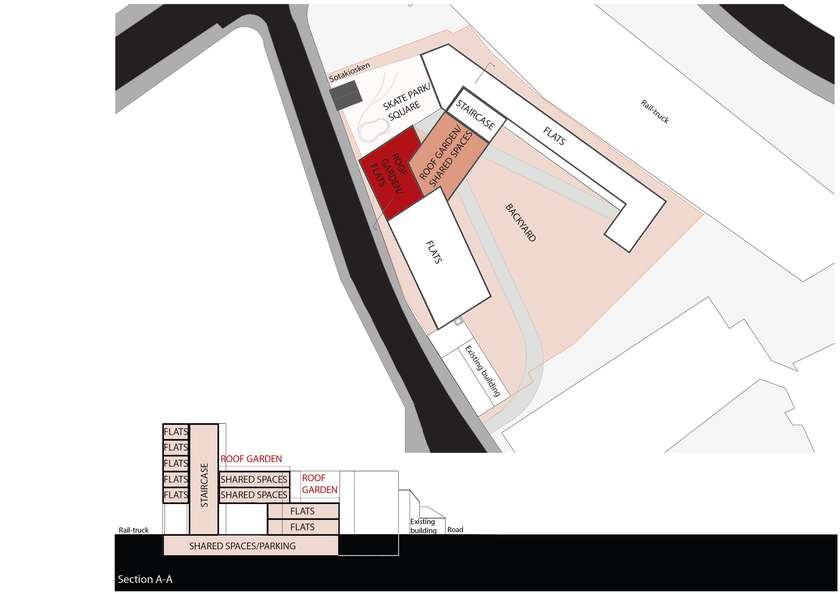
The shared spaces the building includes are a common living room, offices, hotel rooms for the guests, urban farming spaces, laundry room, space for movie projection or watching sports games, bicycle workshop, space for common meetings. The last one can also serve as space for exhibitions, garage sales, reading club, pecha-kucha, music practice. All common spaces are protected by the building block council and can be used by all residents through an online booking platform.